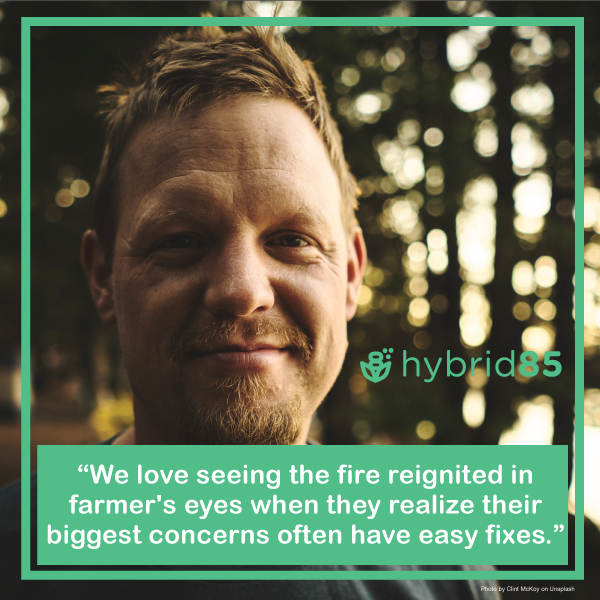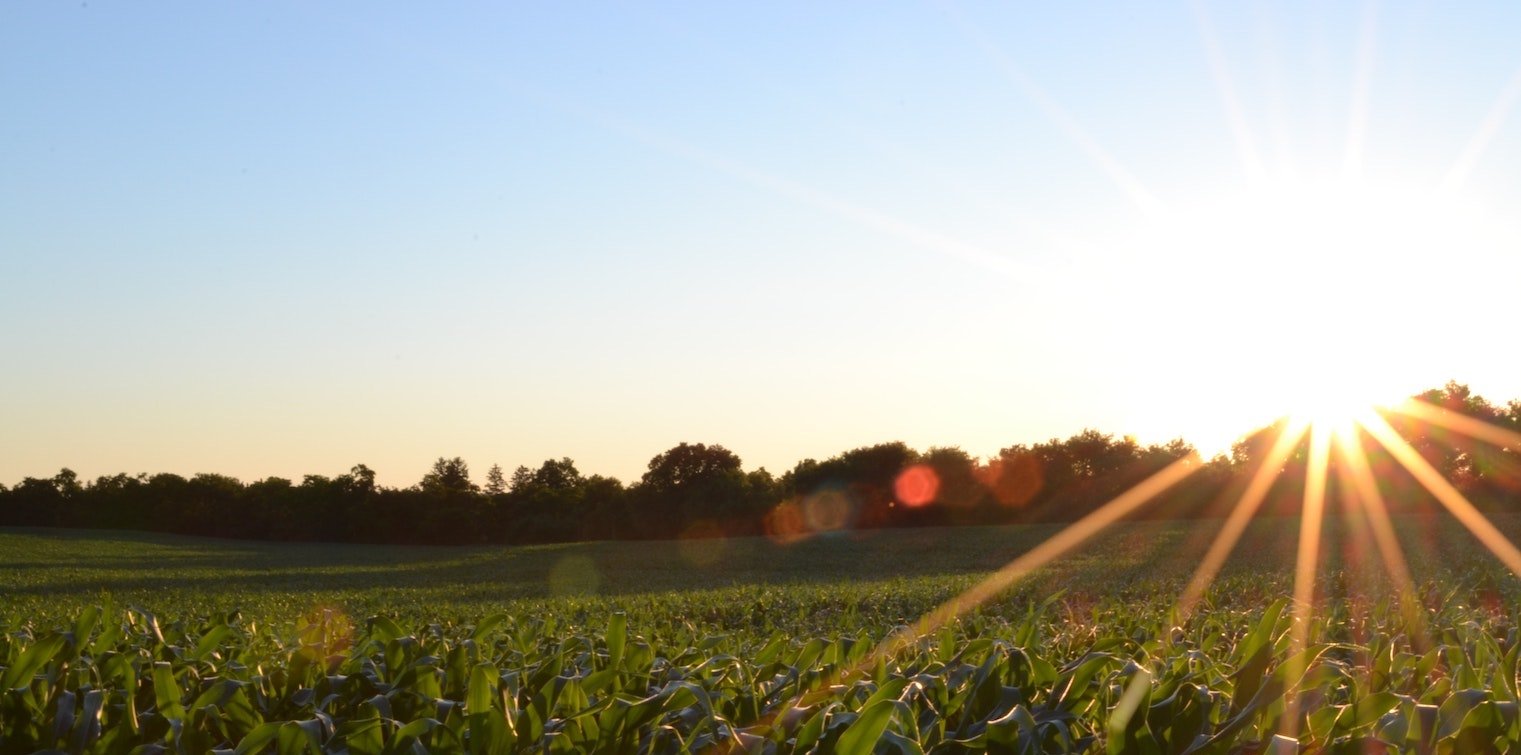Farming Change: 5 Solutions to Common Excuses
Whether you're looking to grow, or dig yourself out, these simple shifts to approach and mindset can help you build soil health, increase profitability and even make farming fun again

In gas stations and bleachers, by phone, text and DM, regenerative ag specialist Nate Belcher hears from farmers every day who struggle with reasons not to make changes that could benefit their operation.
"I hear a lot of the same fears and concerns," says Belcher, co-founder of independent seed corn company Hybrid85, and its aptly named sister Cover Crop Exchange.
"Maybe you've planted GT corn for a couple decades now, or you've got specialized equipment. Maybe you've got a lot of bank debt tied up in your operation and don't want to risk making changes."
There are plenty of variables farmers can't control, Belcher says, "but have you been doing everything you can within your control to set yourself up for success?"
Many of those problems have simple solutions — you just have to start today, with the first little step, he says. "By putting off the inevitable, you're inviting more stress into yours and your family's life, and limiting your options to deal with it."
Whether your operation is looking to grow, or dig yourself out, Belcher says it's never too late to apply simple changes to build soil health, increase profitability, and even to make farming fun again.
"We love seeing the fire reignited in farmer's eyes when they realize their biggest concerns often have easy fixes," Belcher says.
Here are 5 practical solutions to common farmer concerns:
1. "I have to use a lot of fertility inputs."
Belcher says he often hears the misconception that getting the outputs a farmer's looking for means being forced to utilize a large amount of fertilizer. That is just simply not true, he says.
"You just need the right kind of fertilizer at the right time," he says.
Belcher recommends soil testing along with an in-season, plant-sap analysis. The plant-sap analysis gives growers a "looking glass" into the plant to measure nutrient deficiencies before they become otherwise visible offering as much as a 2-4-week window to correct deficiencies before they affect yield.
"Think about it like a blood test for a plant," he says. This is important because once nutrient deficiencies cause visual symptoms, yield has already been lost in corn. The test allows farmers to correct nutrient deficiencies before they become yield inhibiting, he says.
"Many times we can address nutrient deficiencies at a lower price point because we're not wasting money on unnecessary products," he says.
2. "I'm so far in debt / I'm so specialized. I can't change."
If you're on the cusp of financial viability, it's understandable the last thing the bank wants you to do is make major changes, Belcher says. But instead of trying to squeeze those tiny efficiencies of scale out of investments like better equipment, think, "are there fundamental changes to my practice I can make?"
"If your reservation is about having a lot of debt and ‘I can't change because I have to get it back to balanced,'" he says, remember doing the same things you were doing when you got into that position isn't necessarily going to get you out.
Belcher also talks to farmers who say their specialized equipment keeps them from diversifying their crop rotation.
"This is a common thread in farming," he says. "It's becoming so specialized to where it's jeopardizing longevity, and it's not profitable. So why keep doing that?"
His answer: "If your equipment is not pulling its weight, sell it." Take inventory of what you have, determine what is essential and what is not. "If something isn't working for you, get rid of it. With anything in life, no matter how far in you are, you can always turn around and change course," he says.
At the same time, it's natural to feel so overwhelmed by the big picture that it's hard to get started. So grab a pencil and paper or your notes app, and break it down to practical, achievable steps.
"Ask yourself what is one step you can take today to put yourself in a better situation in two months?" he says.
3. "Cover crops just cost me money."
Cover crops make you money by reducing your inputs — injecting nitrogen into your soil, and controlling erosion, weeds and pests, Belcher says.
Even better, farmers just starting off can get them paid for through government programs.
"The government is willing to foot the bill for three years to help you figure it out for yourself," he says. "It's low-risk research."
And if cover crops look to pay off, Belcher says, "you can scale it up across your acres and have a huge impact across your operation."
There are plenty of government programs that will pay for a portion of (eQip) cover crops for farmers to try them.
4. "I need Roundup™-Ready corn."
When Glyphosate-tolerant (GT) corn came out in the mid-'90s, it was quite the revolution in weed prevention. And, setting aside its potential impact on human health and the environment for lawyers to figure out, farmers' increased reliance on the substance has caused problems, Belcher says.
"We've forgotten, or deprioritized some of our most-effective weed-management processes — specialized knowledge — like using cover crops, crop rotation, roller-crimpers, different types of herbicides along with proper nutrient management in the soil," he says.
"I understand why you think you need it. But the bottom line is you don't."
For many farmers, glyphosate just doesn't work anymore, Belcher says. It's no longer an effective herbicide for the weeds they need controlled.
"If it's not managing your waterhemp and pigweed — why pay for the traits if you can't properly utilize them?" he says.
Many farmers are surprised at how clean (weed-free) their fields can be when they use non-GMO corn, Belcher says.
"It's not much different than using GT corn, but simply takes a little time and preparation," he says. Get with your local co-op. Put a program together to figure out an effective weed-control program, he says.
And of course, don't forget about the upside to growing non-GMO corn!
- Less herbicide resistance;
- Fewer issues with volunteer corn in beans;
- Often better digestibility for livestock;
- Faster residue breakdown for effective release of nutrients for the next crop;
- Great yield potential;
- And no trait royalties — which allows Hybrid85 to sell quality non-GMO corn at a fraction of the price — starting at just $85/bag.
5. "My farm's profitable. Why would I change?"
It's pretty apparent that consumers are demanding more from their food system — more non-GMO, more regenerative practices and a shift from what they've been consuming for decades.
This demand is only going to increase, Belcher says, so take advantage by implementing these practices today. That way, when the time comes you can be ahead of the pack.
We're here to help farmers win in the fields. If there's anything we can help you with, please reach out to
us a [email protected] or contact us.


5 Practical Ways
Corn Farmers Can Make More Money
Download Our FREE PDF and stop just surviving — start thriving
